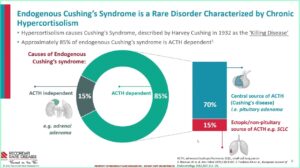NEW YORK (Reuters Health) – Women with hyperthyroidism who receive antithyroid medication during pregnancy face an increased risk of giving birth to a low birthweight (LBW) infant, researchers from Taiwan report in the May 31st online BJOG An International Journal of Obstetrics and Gynecology.
“As maternal hyperthyroidism or thyrotoxicosis itself may present a risk to the mother and fetus, the hazard of using antithyroid drug during gestation should also be carefully and balancedly considered and evaluated,” Dr. Herng-Ching Lin from Taipei Medical University, Taipei, Taiwan told Reuters Health in an email.
Dr. Lin and colleagues compared the risk of adverse pregnancy outcomes among pregnant women with hyperthyroidism in a case control study of 2830 mothers with hyperthyroidism and 14,150 age-matched mothers without hyperthyroidism.
Women with hyperthyroidism who received antithyroid medication had a significantly higher incidence of LBW infants (8.81%), preterm birth (7.67%), and small for gestational age (SGA) babies (18.18%), compared with women with hyperthyroidism who did not receive antithyroid drugs (6.06%, 7.62%, and 17.21%, respectively) or women without hyperthyroidism (5.12%, 6.60%, and 15.17%, respectively).
The increased odds of LBW and SGA infants for women with hyperthyroidism compared with women without hyperthyroidism persisted after adjusting for maternal and infant variables, but there was no increased risk of preterm birth or congenital anomalies for women with hyperthyroidism.
Women treated with propylthiouracil, especially those receiving a high dose or treatment during the second trimester, had a higher risk of giving birth to LBW infants than did women not treated with antithyroid drugs, whereas the use of methimazole/carbimazole was not associated with an increased risk of any adverse fetal outcome.
“The mechanism by which propylthiouracil may impact fetal outcomes remains unclear,” the researchers note.
“In women with hyperthyroidism who attempt to become (pregnant) later, ablation therapy, such as radioiodine or surgery, should be considered to minimize the potential need for antithyroid drugs during pregnancy,” Dr. Lin said. “During pregnancy, hyperthyroidism women should be considered and evaluated to treat with antithyroid drugs.”
“Thus, pre-conception evaluation and counseling, awareness of hyperthyroidism, careful examination and monitoring signs of low birthweight during prenatal care (e.g., use of obstetric ultrasound), and cooperation between the patient, the obstetrician, the endocrinologist, and other supporting medical team are essential steps to optimize both maternal and fetal health,” Dr. Lin concluded.
BJOG 31 May 2011.




